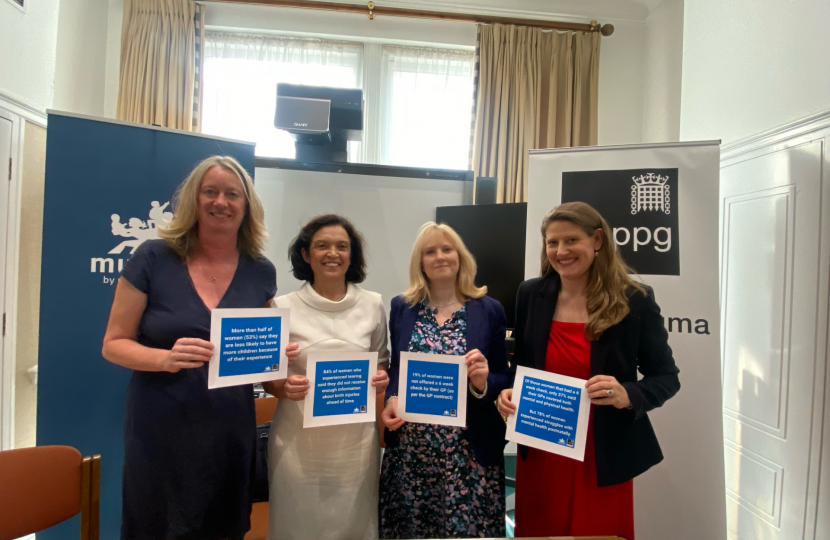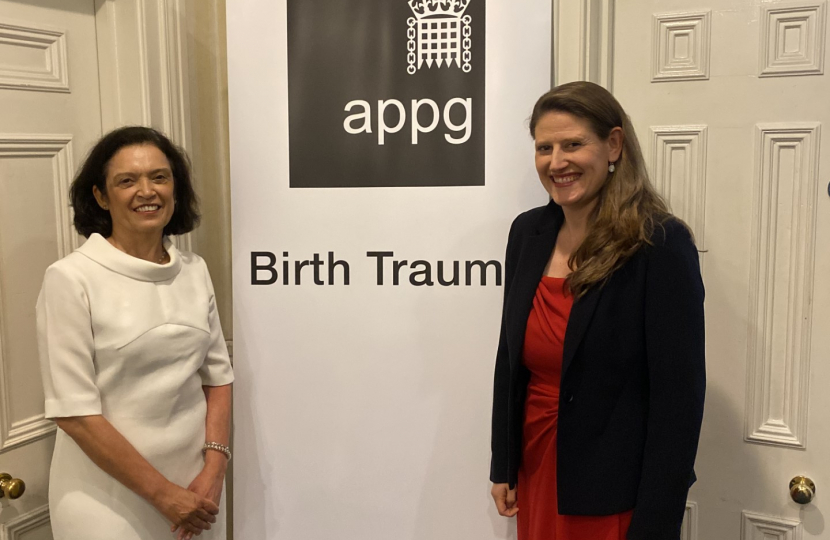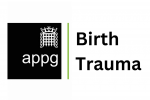On Monday Theo Clarke MP hosted the first meeting of the new All Party Parliamentary Group for Birth Trauma in Parliament, to launch the results of a specially commissioned survey with Mumsnet. More than a thousand women from across the UK contributed to the results. The survey found that 79% of women have experienced birth Trauma, with 53% experiencing physical trauma and 71% experiencing psychological or emotional trauma. The full results can be found at the bottom of this page.
At the event, Ms Clarke welcomed Dr Ranee Thakar, President of the Royal College of Obstetricians and Gynaecologists, who shared her expertise on the subject and welcomed Ms Clarke's campaign. The Stafford MP also welcomed Justine Roberts, the founder of Mumsnet who said that "We hear daily on Mumsnet from women who have had deeply upsetting experiences of maternity care, and this latest research underlines that the majority of mothers experience birth trauma - whether physical or psychological. This trauma has long lasting effects and it's clear that women are being failed at every stage of the maternity care process - with too little information provided beforehand, a lack of compassion from staff during birth, and substandard postnatal care for mothers' physical and mental health. This is not solely an issue of staffing or funding. It is a cultural problem which sees women belittled and undermined, with their choices and experiences ignored. These failures of care would not be tolerated in any other part of the health service, and it is no coincidence that they repeatedly occur in a section of the NHS which exclusively treats women and their babies. Last year’s Women’s Health Strategy was a welcome acknowledgement of how a misogynist, ‘male as default’ approach has let women down and put them in danger. But as our research shows, women are still all too frequently suffering as a result of substandard maternity care. The APPG for Birth Trauma has a vital role to play in raising awareness, sharing women's stories, and leading urgent action to tackle the decades of entrenched inequality in health".
When asked about the survey, Ms Clarke stated: "These survey results are deeply upsetting. They speak to my own experience and quite clearly to many, many other women's horrendous experiences too. That more than half of women say they are less likely to want another child because of their birth experiences and they were made to feel they were to blame is simply terrible. The survey is clear that more compassion, education and follow up care for mothers who suffer birth trauma are desperately needed if we are to see an improvement in mums' physical and mental wellbeing. It is not right that nearly half of women felt unsafe during their post-natal care and 43% felt unsafe during labour. Another finding is just how little support and information there is for partners when new mothers suffer a traumatic birth. The APPG is now up and running and will continue to listen to mothers and experts to drive fundamental change in how we treat mums. The ambition is for birth trauma to be an integral part of the government’s upcoming women’s health strategy. It is vitally important women receive the help and support they deserve. Many spoke of the physical and mental struggles they still endure years after their birth trauma. More resources and more midwives is only part of this story. Many of the survey’s findings talk about the need for a seismic cultural change in attitudes in our maternity services".
This important event was also attended by health professionals such as Dr Nitish Raut and campaign organisations such as MASIC, British Pregnancy Advisory Service, Make Birth Better, Community Birth Club and the Birth Trauma Association, who have worked closely on this campaign from the start. Their founder, Kim Thomas said that “These findings paint a picture of a health service that is failing women at every stage of their journey into motherhood. Disturbing though they are, however, they bear out what women have been telling us for years. The problem starts with poor antenatal education: it is clear that very many women go into labour without being aware of the possibility of physical injuries or understanding what a caesarean section involves. We are shocked, but not surprised, that three-quarters of women felt that health care professionals were not sensitive to their experience or that more than four in 10 used language that implied women were to blame when things went wrong. One of the most striking findings is the poor quality of postnatal care: half of the women in the survey said they felt “unsafe” during postnatal care, and one in five were not offered a six-week GP check. The fact that so many women with physical injuries or mental health problems are not being diagnosed or offered support is deeply troubling. We have now seen several major reports, such as those into Shrewsbury and Telford and East Kent, that show many maternity services are in a dire state. It is time for a complete overhaul in the way women experience maternity. This should include: honest, evidence-based antenatal education; compassionate and professional care during labour; and postnatal care that is designed to identify and treat every birth injury or mental health problem. A maternity system that puts women at the heart of care is not some kind of unfeasibly high goal – it is the bare minimum that women have the right to expect.”
Ms Clarke was particularly delighted that Mums, as well as a trustee of MASIC from the Stafford constituency could attend this event.





